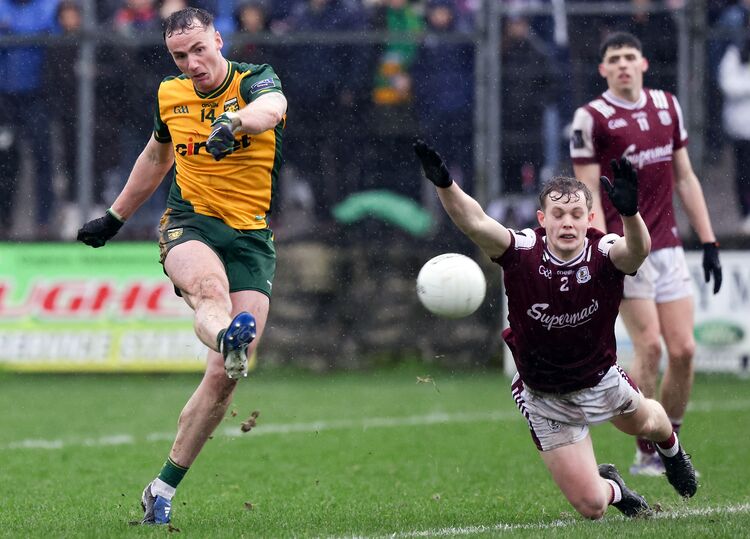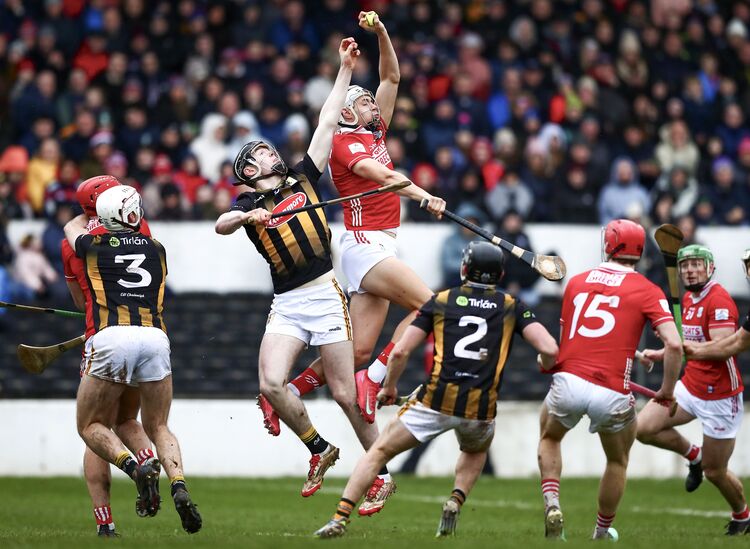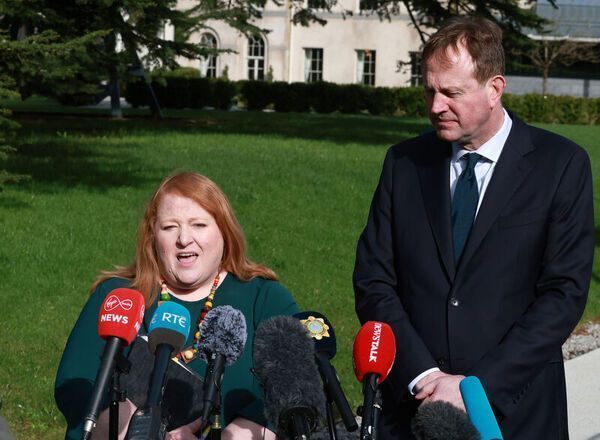Almost 15 years have passed since I spent a morning in Higgins's home in Cavan. He was then a sprightly 72 years old and the passions of his life mapped out his living room. The Bank of Ireland Hall of Fame sculpture stood sentry near the door. On the television set in the corner, there was a picture of his son John as a toddler, almost up to his neck in the Sam Maguire. The mantelpiece was book-ended by greyhound racing trophies, and groaned beneath the weight of a thousand year old lump of bog oak presented to him by the grateful denizens of Longford GAA after his wondrous spell in their camp.
Looking down from the wall was a framed memory of the 1952 All-Ireland winning Cavan team. In it, the players at the front genuflect solemnly with their hands clasped together on one knee. With ne'er a bench or a zoom lens in sight, the background was framed by a heaving stand full of cloth caps. It was a different era. It was Mick Higgins and Cavan's era. He played his first senior inter-county game in 1943 and in his 11 subsequent championship campaigns, he never knew a summer without an Ulster final.
"Twas easy picking up medals in Ulster that time, sure I won eight of them," said Higgins who also possessed the characteristic modesty of the truly great. "I threw them in a box as they came and there were no remarks passed, they were coming so easy. I didn't look after them that well but I never lost any of them either."
For the first few years of his tenure, Cavan had trouble going all the way but then came 1947. The Polo Grounds and all that. Not just an All-Ireland final - more an adventure. The flight across took them 27 hours but just getting there at all was something.
"There was a bit of engine trouble going into the Azores and we were delayed for seven hours there," remembered Higgins. "Then the plane wouldn't take off. That was when we all started doing a bit of praying. It was an ex-army plane and I remember saying that I was going back by boat no matter what happened."
Their prayers were answered and when the Cavan and Kerry footballers arrived in New York, the adventure was only beginning. Having waded through hordes of emigrants that welcomed them at the airport, the entourage wended its way to the Waldorf-Astoria, their passage through the city smoothed by an NYPD motorcycle escort. Welcome to America and the notion of the athlete as celebrity. Cavan prevailed by four glorious points in the end in a match played on a rock-hard field, replete with a baseball mound in the middle of it. Four days later, both squads were setting sail for Southampton. No fuss. Just glory.
"There wasn't that much hype about it at the time, not like there is now," said Higgins. "I didn't take hardly any drink myself and in any case, there wasn't the type of money in circulation to keep fellas for three days drinking and the like."
The lack of attention and absence of commercial reward didn't bother Higgins. He carved out his own career as a Garda sergeant, the various postings around Cavan and other parts offering him the chance to represent and usually win counties with several different clubs. There was no rest in retirement either when his county came calling in the sixties and asked him to take over. In the seven years of his reign, Cavan won four more Ulster titles. It says much for his popularity and standing that in 1966, he was in charge of both Cavan and Longford when the pair of them met in the National League semi-final.
"I couldn't have foreseen that would happen. I just looked after Cavan on the day and then went back to Longford for the final where they gave me a bit of a ribbing about Cavan losing."
A couple of years after seeing him steer Longford to their first and only Leinster title (beating Offaly, Dublin and Meath along the way), Brian McEniff asked him up to Donegal to help out a few nights a week. As seemed to happen wherever he lay his coaching hat, he led them to an Ulster title (their first) too in 1972.
"I seemed to be very lucky," said Higgins. That was only his modesty speaking. A man doesn't win that many trophies as a player and manager through fortune or providence. He had a superb footballing brain and is regarded by astute judges as the first truly cerebral center-forward. In the time of "The Ban", he even showcased his distribution skills as a soccer winger with St. James Gate in Dublin under an assumed name. His true gift however was that unlike some, he was able to transfer innate football intelligence to his decision-making when he moved to the sideline. It's also been said more than once in the various obituaries over the past few days that his greatest boast was he never struck an opponent and was never sent off the field of play. One more line in an epitaph where there are too many others to choose from. Ar Dheis De go raibh a hanam.









